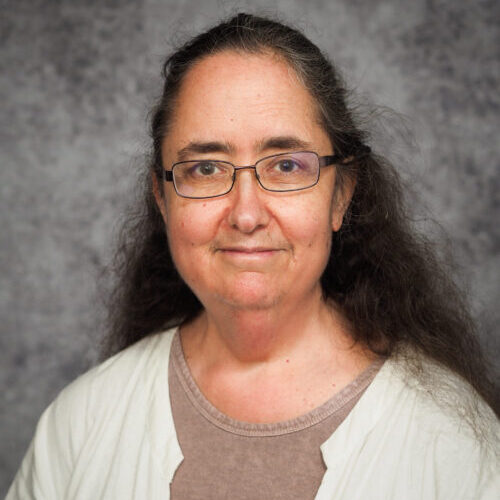Jean Goodwin
SAS Institute Distinguished Professor of Rhetoric & Technical Communication
Department of Communication
Winston Hall 229
Bio
Jean Goodwin joined NC State in August 2016 as a Chancellor’s Faculty Excellence Program cluster hire in Leadership in Public Science. Goodwin, a professor in the Department of Communication, studies how scientists can communicate appropriately and effectively to non-expert audiences. She took her baby steps in research by examining how citizens who deeply disagree can nevertheless manage to reason with each other. The communication techniques she uncovered among ancient Roman orators and contemporary policy advocates have proved surprisingly relevant to the challenges scientists face when they try to earn trust in controversial contexts. Goodwin uses discourse analysis to tease out the ways outstanding scientist-communicators address difficult audiences on topics such as GMOs and climate change. She also uses conceptual analysis to connect these practices to broader theories of the responsibilities and roles scientists can undertake in civic life.
In line with the spirit of “think and do,” Goodwin has translated communication theory into practical resources for scientists of all ages who want to hone their communication skills. She has lectured widely and led workshops on science communication. Her National Science Foundation-funded project Teaching Responsible Communication of Science, crafted case studies that invite science, technology, engineering and mathematics (STEM) graduate students to address communication challenges based on actual events. She has also built bridges between scholarly communities by helping communication graduate students find sites for funded research in large science projects, and by organizing a series of conferences bringing together diverse scholars to examine pressing issues in science communication.
Goodwin received her bachelor’s degree in mathematics and her J.D. from the University of Chicago, and her Ph.D. in communication arts from the rhetoric program at the University of Wisconsin-Madison. In addition to more than 25 years in the classroom introducing undergraduates to the rhetorical tradition, she has mentored graduate students across a variety communication subfields and academic departments. Her essays have been published in international journals in communication, philosophy and the sciences. She has served as a consultant on initiatives by the American Association for the Advancement of Science and the Union of Concerned Scientists to define the appropriate roles of scientists as advocates.
Responsibilities
Leadership in Public Science cluster
Research Publications
Goodwin, Jean. (2017, forthcoming). Effective because ethical: Speech act theory as a framework for scientists’ communication. In Susanna Priest, Jean Goodwin & Michael Dahlstrom (Eds.). Ethics and Practice in Science Communication. Chicago: University of Chicago Press. 29 pp.
Goodwin, Jean. (2014). Lippmann, the indispensable opposition. In Brian Jackson & Gregory Clark (Eds.), Trained capacities: John Dewey, rhetoric, and democratic practice (pp. 142-158). Columbia, SC: University of South Caroline Press.
Goodwin, Jean, & Dahlstrom, Michael. (2014). Communication strategies for earning trust in climate change debates. WIREs: Climate Change, 5(1), 151-160.
Goodwin, Jean. (2011). Accounting for the appeal to the authority of experts. Argumentation, 25, 285-296.
Herndl, Carl, Goodwin, Jean, Honeycutt, Lee, Wilson, Greg, Graham, Scott, & Niedergeses, David. (2011). Talking sustainability: Identification and division in an Iowa community. Journal of Sustainable Agriculture, 35, 436-461.
Goodwin, Jean. (2010). Trust in experts as a principal-agent problem. In Chris Reed & Christopher W. Tindale (Eds), Dialectics, dialogue, and argumentation (pp. 133-143). London: College Publications.
Goodwin, Jean, & Honeycutt, Lee. (2009). When science goes public: From technical arguments to appeals to authority. Studies in Communication Sciences, 9, 125-136.
Goodwin, Jean. (2007). Argument has no function. Informal Logic, 27, 69-90. (Reprinted as A argumentação não tem função, 2010, Comunicação e Sociedade, 16, 123-144).
McAndrews, Gina, Goodwin, Jean, & Mullen, Russ E. (2006). Using environmental and ethical issues for debate in an introductory agronomy course. North American Colleges & Teachers of Agriculture Journal, 54-61.
Education
B.A. Mathematics The University of Chicago 1979
J.D. Law The University of Chicago 1984
Ph.D. Communication/Rhetoric University of Wisconsin-Madison 1996
Area(s) of Expertise
civil argumentation on issues of common concern; communication of science to the public, especially on controversial topics; teaching argumentation and critical thinking; great speeches as a window to history; history and philosophy of communication
